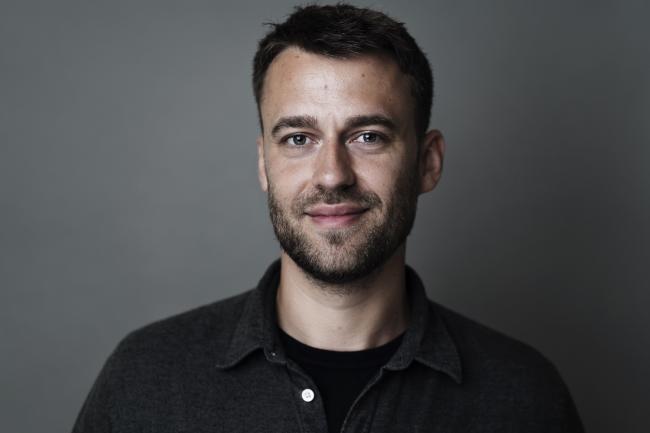Articles Menu

Aug. 22, 2020
Then Danish journalist Kristian Lindhardt arrived at the Vancouver airport on Friday, he knew he would face additional levels of border scrutiny because of the coronavirus. Lindhardt wasn’t too concerned, though, because he has international press credentials from Denmark’s version of CBC and a statement from Chief Reuben George of the Tsleil-Waututh First Nation explaining that Lindhardt is here to report on the Trans Mountain pipeline. Lindhardt had also made all the necessary arrangements for a 14-day quarantine in Vancouver.
But just as Lindhardt was about to get through customs a border guard pulled him aside. The guard questioned him for hours and made him sign a document promising to fly back to Denmark today. “I asked what happens if I don’t sign them,” Lindhardt told The Tyee over the phone Saturday morning, just hours before his flight back to Europe was set to depart. “And he said he would detain me in a jail cell.”
The B.C. government currently deems “newspapers, television, radio, call centres, online news outlets and other media services” as essential work. But there is no direction from the federal government saying journalists must be let into the country, according to Green Party MP and former leader of the party Elizabeth May, who has looked into the issue. At the end of the day, it’s up to individual border guards to decide who can enter and who can’t.
“Under the current COVID pandemic, most Canadians would rather we’re very careful in keeping people out,” May explained. “On the other hand, I think a lot of us would like to have a documentary about what’s going on with the Trans Mountain pipeline. The documentary serves an important public purpose and I hope Lindhardt will be able to complete it.”
The Tyee spoke with Lindhardt Saturday shortly before he appeared at the airport, as ordered, expecting to be deported. By late morning, as this story was published, he was with immigration authorities deciding his fate.
Geoff Dembicki: Could you tell me about the reporting you’re doing here?
Lindhardt: So I was here for four months earlier in the year before COVID shut everything down to film a documentary on the resistance against the Trans Mountain pipeline and just the general climate movement, centering the George family of the Tsleil Waututh First Nation. I had to go home but I came back to finish the documentary. I’m also here to cover that story for the DR, which is the Danish version of CBC. I have my credentials, my press card, a statement from Reuben George.
Why is someone from Europe interested in doing a documentary about Trans Mountain and oil development here?
I was at the climate summit in New York last year in September and realized that I was the only journalist present at all of the Indigenous events. So the whole world press were in the United Nations building and I was right next door covering these events. I heard about what was going on in Vancouver and the resistance there, and I learned Canadian media wasn’t covering the story the right way either. So I got in contact with Reuben George. When I came here earlier this year I started shooting footage of his family and showing up to all of the actions and demonstrations against the pipeline. I showed up for the actions at Jonathan Wilkinson’s office, the minister of the environment and climate change. And he started dodging me. So I definitely had a sense of the government being aware of who I was.
You had no problem getting into Canada the first time around?
Yeah, not at all. I’ve been here several times before. I lived here for six months back in 2014. I’ve been back since to do other work. I’ve never had any issues before.
Could take me through what happened this time when you tried to enter?
I knew there would be extra checks, so I was aware of that. So I brought extra documents for that just in case. And I was questioned in Copenhagen, Amsterdam and Vancouver and went through all of them. As soon as they saw my press card, I was the immediately let through. But then after the first security stop in Vancouver, right by the exit, I was pulled into customs. The officer just kept saying that my work is not essential and that people couldn’t see their partners, their girlfriends or boyfriends. He said Canada has reporters already, so they didn’t need me. And I tried telling them that I’m only here because Canadian media isn’t covering this story properly.
If you get sent back, will you be able to finish the documentary?
Well, at least not for now. It’s a time issue. The government has been going forward with building the pipeline even under COVID. And I’ve been one of the people covering that. If my time here is postponed for too long, it might decrease some of the pressure on the officials since less media would be present to cover it
What conclusions are you drawing from all this?
Everywhere in the world, during every crisis, journalists are always exempt from every travel ban, even in places like Syria. So if a journalist is blocked and sent back because he’s here to cover how the government’s pipeline has been trammelling on Indigenous rights, then that’s a big issue, since Canadian media isn’t covering the story itself. So I would say it’s limiting press freedom and the general public’s awareness of issues, not only here, but internationally as well. ![]()
[Danish documentary-maker Kristian Lindhardt works with his country’s version of the CBC and has visited BC many times working on his documentary about the the Tsleil Waututh First Nation’s opposition to the TMX pipeline expansion. Photo: Supplied]